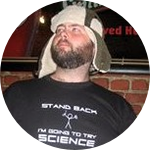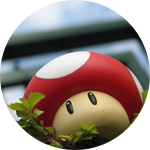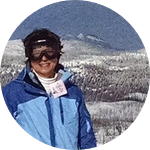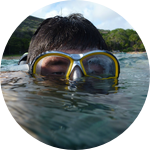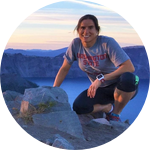About This Project
This project will investigate bacteria that could protect corals and shellfish from fatal infections by the bacterium Vibrio coralliilyticus. Several bacteria we’ve found produce antibacterial compounds that inhibit V. coralliilyticus growth and potentially prevent infection. If we can learn what these compounds are and how they work, we can use this knowledge to develop treatments before the world’s reefs and shellfish are beyond saving.
Ask the Scientists
Join The DiscussionWhat is the context of this research?
V. coralliilyticus causes coral bleaching and/or tissue loss, a fatal condition, which is defined as the destruction of the coral tissue and exposure of the white skeleton. Corals are thought to use microbes inhabiting their mucus to protect against infection from V. coralliilyticus. We have isolated bacterial strains from healthy coral mucus that can inhibit the growth of V. coralliilyticus in the laboratory. Their role in protecting coral from V. coralliilyticus remains untested. While the prevailing theory is that the mucus microbes that stop V. coralliilyticus growth are involved in protecting the coral host from infection, our research will be the first to show this directly.
What is the significance of this project?
Coral reefs are irreplaceable cornerstones of countless marine ecosystems, but they are threatened by diseases caused by V. coralliilyticus. This pathogen is also responsible for widespread mortality at oyster hatcheries, which poses a threat to economically important marine food corps. Gaining a better understanding of how coral naturally defend against this pathogen could facilitate treatment and control of the disease. This work is quite similar to the studies currently being conducted on the bacterial interactions in the human gut and how they have influenced human medicine. If allowed to proceed unchecked, V. coralliilyticus has the potential to wreak widespread havoc in the world's oceans.
What are the goals of the project?
We have found several marine bacteria that produce antimicrobial compounds that stop V. coralliilyticus growth. The first goal of this project is to show that these bacteria can protect both coral and shellfish against V. coralliilyticus infection. Coral or oyster larvae will be doused with cultures of the probiotics to evaluate their ability to protect against V. coralliilyticus. The second goal is to determine whether the protective probiotic strains prevent infection using their antibacterial activity. This will be accomplished by identifying the genes responsible for antibacterial activity, inactivating those genes, and determining if these strains can still protect coral and shellfish V. coralliilyticus infection. This project will begin in the Fall of 2016.
Budget
The donations gathered here will be used for supplies needed for this research and obtain results to back a proposal for larger, national grants to expand the scope and duration of the study. Supplies are needed for coral experiments (aquariums, water pumps, heaters, grow lights), oyster larvae experiments (24-well plates to house larvae), and flights from our home institution, Oregon State University, to the study site on Oahu, Hawaii, where the pathogen was isolated. The remaining funds will be put towards identifying the genes used by the probiotic bacteria to produce the antibacterials that inhibit the growth of V. coralliilyticus. These experiments require DNA sequencing to identify genes and DNA restriction enzymes and DNA ligase for manipulation of the genes we identify. Your donation will be a tremendous help to get this project going and achieve our goal of developing effective control measures for V. coralliilyticus.
Endorsed by
Meet the Team
Affiliates
Blake Ushijima
Born and raised in Honolulu, Hawaii, Blake received a B.S. in Biology from the University of Hawai‛i at Mānoa (UHM) in 2010. During his time at UHM he began working as a volunteer intern under Sean Callahan from the Department of Microbiology and Greta Aeby from the Hawai‛i Institute of Marine Biology on a newly formed project investigating coral disease in Kāne‛ohe Bay. As an intern he assisted in developing infection trials with the coral Montipora capitata, and initial assessments of the bacterial populations associated with this coral. Blake continued working on coral disease after being accepted into the graduate program at UHM. During his Ph.D., Blake's researched focusing on the molecular mechanisms of virulence utilized by bacterial coral pathogens, while also developing them as genetic systems. His research also included the characterization of bioactive compounds produced by marine bacteria. Blake has identified the etiological agents responsible for four different bacterial coral diseases, while he assisted in the description of a fungal pathogen affecting the crustose coralline algae at Palymra Atoll and a cyanobacterial disease killing corals off the coast of Kauai, Hawai‛i. Over the years, he has worked on numerous projects collaborating with and/or funded by The Nature Conservancy, NOAA, USGS, Department of Justice, and Scripps Institution of Oceanography. In addition to research, Blake has taught a number of laboratory courses at UHM including immunology, general microbiology, marine microbiology, and bacterial genetics. He received his Ph.D. in Microbiology in Summer 2016. He is currently a post-doctoral researcher at Oregon State University working in the lab of Claudia Hase.
Carla Schubiger
Carla received her DVM in 2001 from the University of Zurich in Switzerland where she was born and raised. She was then accepted into the Graduate program at the University of Bern (also in Switzerland) to pursue a doctorate in Veterinary Medicine. Over the next three years she researched a kidney parasite (Tetracapsuloides bryosalmonae) in Brown trout and its relationship to water temperature while evaluating and establishing different diagnostic protocols. During that time frame, she was also involved in diagnostic duties (mostly bacteriology and necropsies) at the Fish and Wildlife Center of the College of Veterinary Medicine in Berne. After receiving her doctorate, Carla spent the next 6 years in private practice as a large/mixed and small animal vet and served as the president of the veterinary association in the north-west region of Switzerland. In 2009 she moved to the USA to once again go back to Grad school and pursue a combined PhD/residency program in Immunology and Infectious Diseases and the residency in Veterinary Anatomical Pathology from Washington State University. Carla researched a putative probiotic that was isolated from the gastrointestinal tract of healthy rainbow trout and identified the genes responsible for the expression of an antimicrobial peptide that was effectively inhibiting Flavobacterium psychrophilum, the etiological agent of the devastating Coldwater Disease in Salmonids. After receiving her PhD for this work, she was offered a position as a postdoctoral scholar at the Department of Biomedical Science in Claudia Hase lab beginning of 2015.
Lab Notes
Nothing posted yet.
Project Backers
- 37Backers
- 104%Funded
- $5,216Total Donations
- $140.97Average Donation

